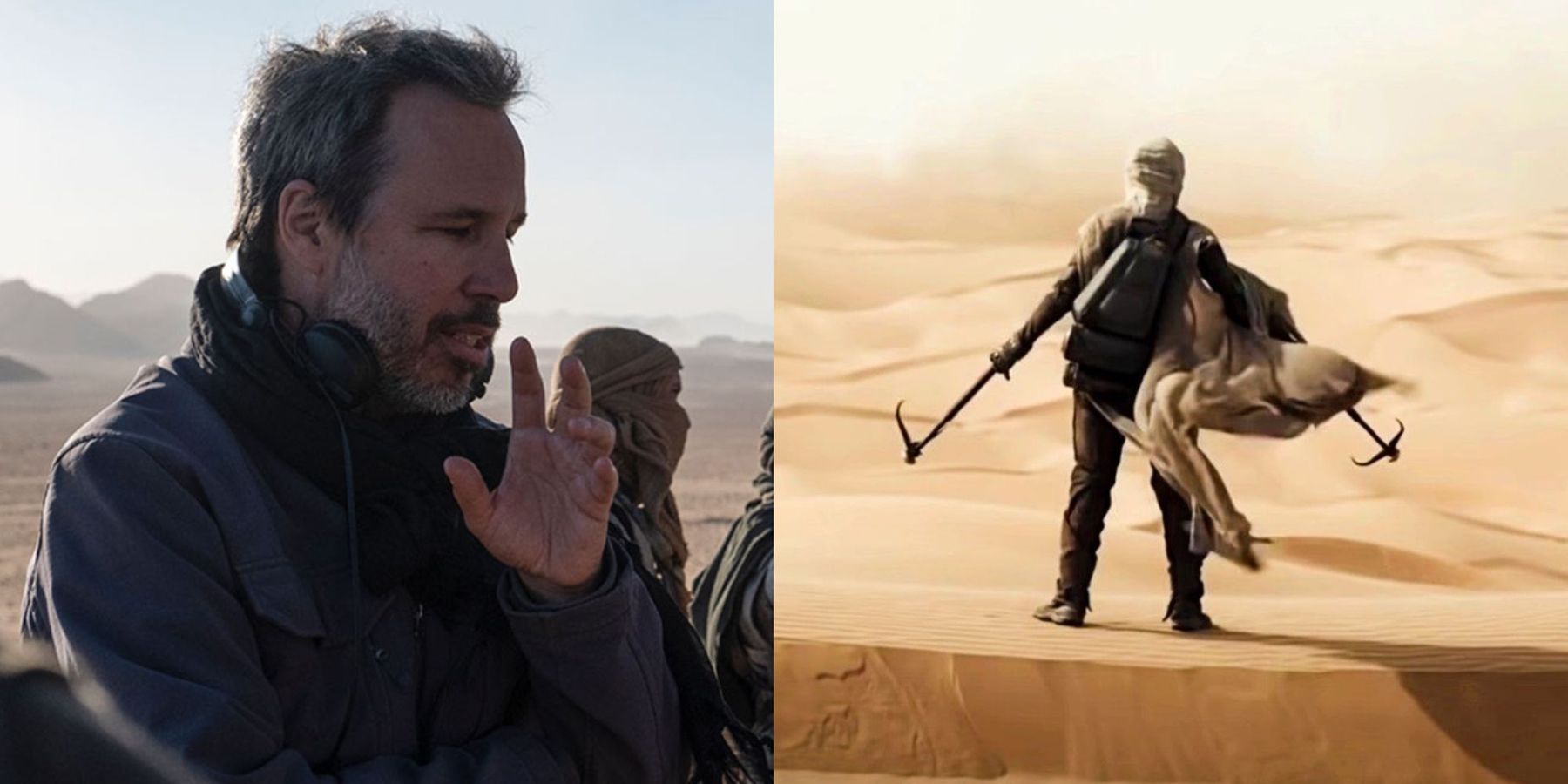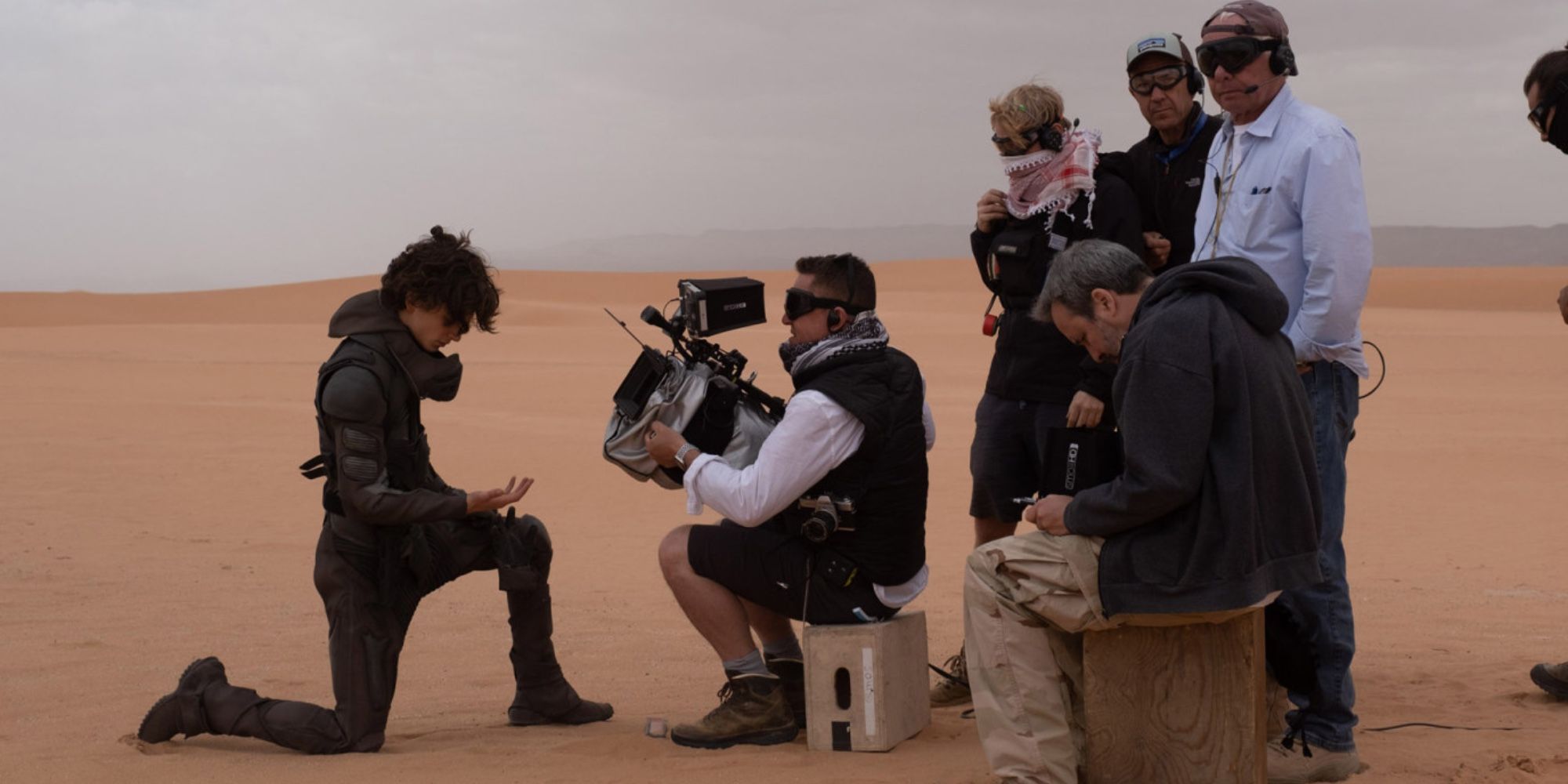With Dune now in theaters, writer and director Denis Villeneuve has been sharing behind-the-scenes information about how realism was a major contributor to his sci-fi epic.
Dune follows the Atreides family accepting the stewardship of the dangerous desert planet Arrakis (also referred to as Dune), which contains the most valuable substance in the universe known as the "spice." Taking control of Arrakis means great wealth and power, but it also means greater enemies, a conflict the Atreides family will have to face.
Villeneuve and producer Mary Parent joined Deadline on Sunday at Warner Bros’ panel for Dune at the Contenders Film: Los Angeles awards-season event at the DGA Theater, where the two delved deeper into their work and how they went about adapting a film based on such a beloved novel from Frank Herbert. “It all started, obviously, with Frank Herbert writing a seminal piece of work,” shared Parent. “I think it was around 2013 when myself and my fellow producer Cale Boyter started chasing the rights." After waiting years for the rights to be secured, Parent read an article that “it was Denis’ dream to make the film”. Villeneuve said, “It was the fastest meeting of my life, it was like 45 seconds. I was dreaming to work on these books for 40 years, and we just shook hands and that was it.”
While there have been many attempts to adapt Herbert's work (which many believed before Villeneuve's adaptation to be impossible due to the complexity and heftiness of the source material), Villeneuve finally seemed to have captured the spirit and tone of that 1965 Dune novel. One big contributor in accomplishing such a feat came down to Villeneuve's goal of injecting a sense of realism into the film. “I remember saying, as a joke, they didn’t do Jaws in a swimming pool,” said Villeneuve. “The movie is called Dune, I wanted it to be in a real desert. It was important for me that the art of the book, nature, religion, and biology… I wanted it to be close to life. I wanted the movie to be as grounded in reality as possible, to get the power of nature."
The director would go on to discuss his mindset in approaching a story like Dune, as he mentioned how biology and ecology were crucial aspects that he felt needed to be explored in greater depth. “The book was the Bible,” said Villeneuve. “The first thing we said to each other was that we are not doing a remake here, we are making a new adaptation. We are going back to the origin, to the book. For the design, we did it like Frank Herbert, we were inspired by biology and ecology. Everything has been made in relationship with the ecosystem in which these things are they are. There’s a scientific logic to everything.”
Dune opened up to rave reviews from fans and critics (racking up an estimated $352.1 million worldwide as of now) and thankfully, it was announced shortly after that the film's success had greenlit its deserving sequel, Dune: Part Two. The sequel, which will cover the second half of the novel, is set to begin filming on July 18th, 2022, roughly a year before its theatrical release on October 20th, 2023.
Dune is currently playing in theaters now.
Source: Deadline


